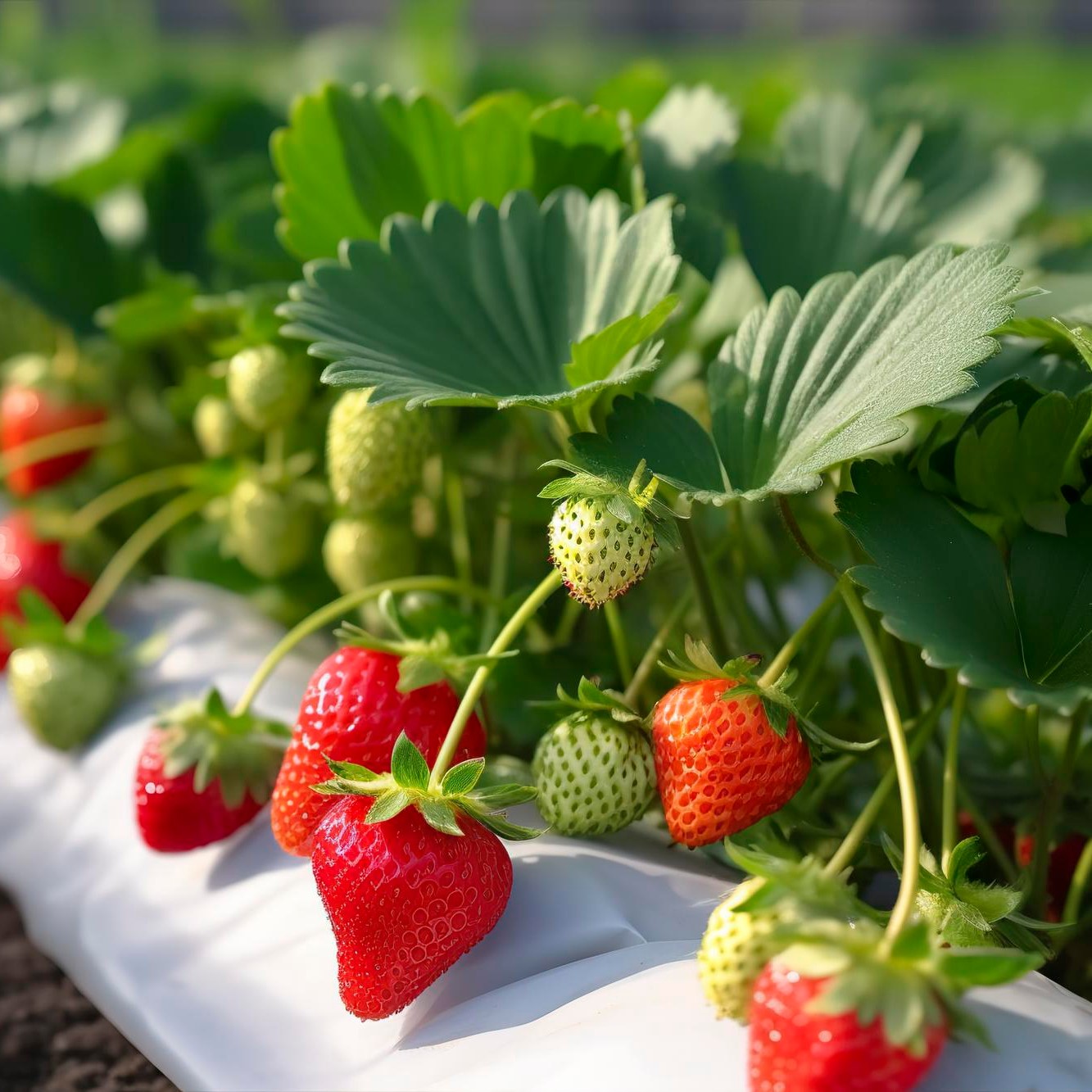Upper Dir, a district in Khyber Pakhtunkhwa, is known for its greenery and vegetable cultivation in the Thal, Kalkot, Kamrat, and Lawari areas. Adjacent to Swat in the Upper Dir district, the eastern regions of Ashiree Dara and Nahaag Dara are recognised as Strawberry Valleys, where the fertile lands make them highly suitable for extensive strawberry cultivation.
In the Ashiree Dara area, comprising three union councils, strawberries are cultivated on a large scale in January, February, and March. The produce is then sent to various districts of Khyber Pakhtunkhwa, including Punjab, for sale in October and November.
However, this time the farmers in this region are facing trouble as thousands of acres of strawberry fields are threatened by a dangerous pest. The infestation is causing severe damage to the crop. The standing strawberry crops in the fields are adversely affected by insects, and there is concern about a significant reduction in strawberry production compared to previous years.
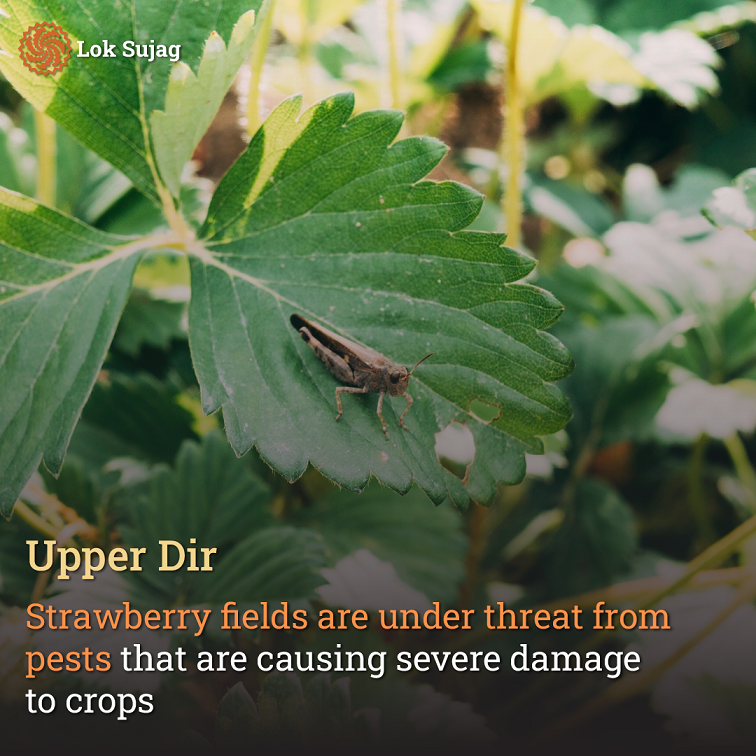
Gohar Khan, a landowner from Ashiree Dara, explains that a single strawberry seedling costs up to two rupees. If the season isn’t good, these seedlings are sold for as low as one and a half rupees. Farmers and landowners involved in strawberry cultivation sell hundreds of thousands of seedlings during the season. However, these seedlings are not marketable in many regions due to the infestation of pests in most areas this year.
“I am a small landowner, but last year I planted around four hundred thousand strawberry plants in a four-canal field, which generated nearly one million rupees after deducting expenses. However, the strawberry crop has been largely devastated due to the infestation of pests in most areas during the season.”
Muhammad Parvez, the Deputy Officer of the Agriculture Department in Upper Dir, states that a significant reason for the infestation of pests in strawberries is the use of local fertilisers, specifically cow dung. His department continues to provide awareness to farmers about this issue, which, if acted upon, could help mitigate such losses.
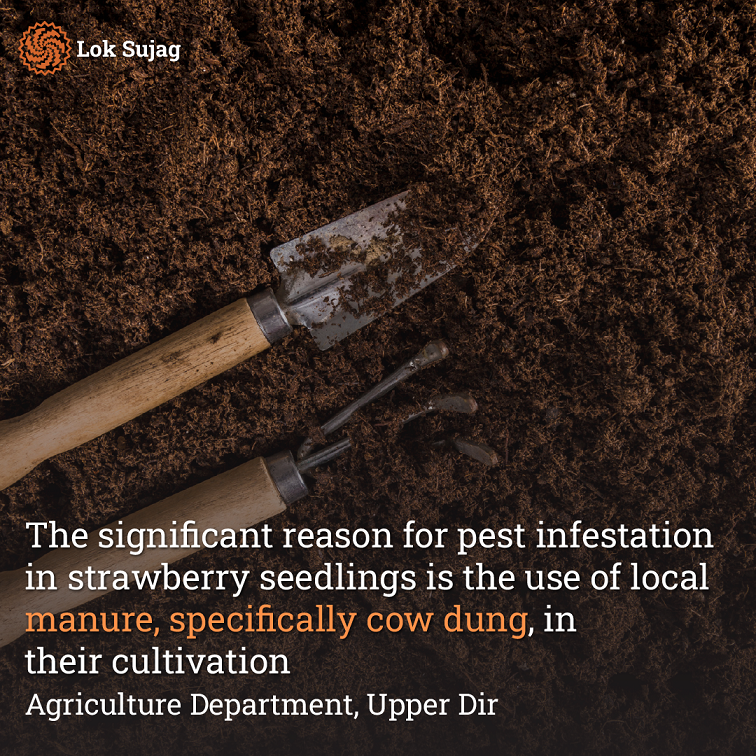
He also mentions that the Agriculture Department maintains contact with wheat, maize and fruit orchard owners and landowners. As many registered landowners as there are, they are provided with all kinds of fertilisers at subsidised rates.
Muhammad Parvez says that various landowners, including those cultivating strawberries and other crops, visit the Agricultural Office for guidance. The department’s staff informs them about chemicals and effective methods to prevent losses, control pests, aphids, and diseases.
In addition, besides providing timely guidance to farmers, awareness campaigns are also conducted on social media. However, the Agricultural Department has no chemicals or fertilisers available for free distribution to farmers.
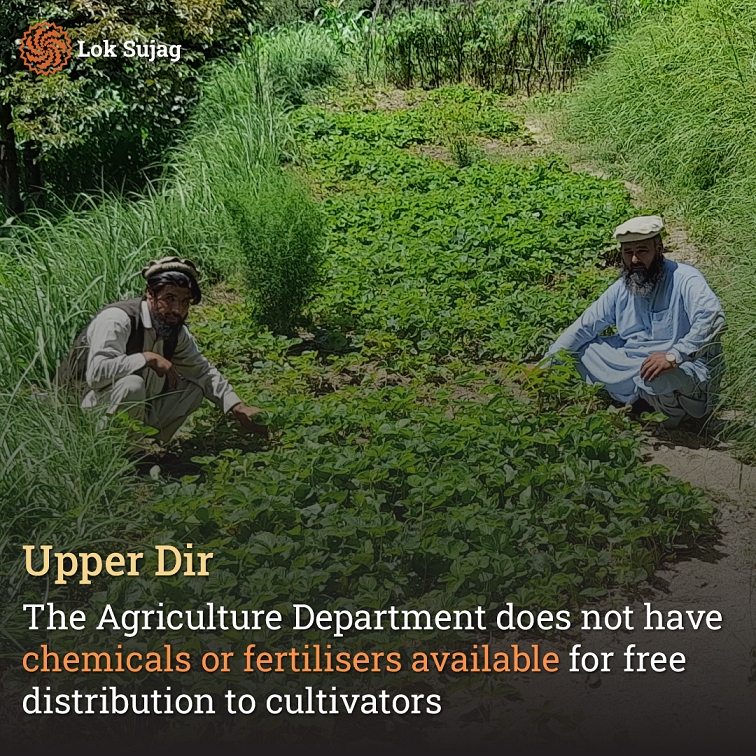
However, Gohar Khan says that the Agricultural Department in Upper Dir has neither engaged with the cultivators nor provided them with facilities such as sprays and other amenities for the crops. This lack of support has resulted in increased losses. Furthermore, the crops have suffered additional damage due to the intense hailstorm during the recent rainfall.
He says that the government should provide financial assistance to mitigate losses and cooperate to protect the crops from pests and other diseases, as this is essential for the livelihood of farmers like them and thousands of underprivileged labourers dependent on this profession.
Also Read
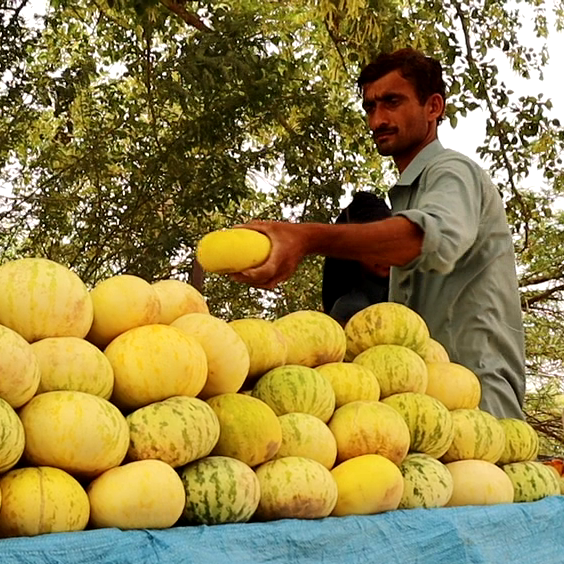
What is the threat to Mankira Melons?
Supporting this view, local social worker Mazharuddin reveals that strawberry farming, including packaging and transportation, has become a crucial source of employment for numerous labourers, cultivators, and transporters in these areas. Landowners and farmers involved in strawberry cultivation also earn significant amounts annually from this crop. If immediate steps are not taken urgently to save the crop from damage, it is feared that the livelihood and well-being of thousands of people will be adversely affected.
Yousuf Ali, who transports strawberry plants from one place to another, shares that during the last year, he earned around one million rupees in just three months by transporting strawberries from various regions of Ashiree Dara to other areas.
Before this, he used to work as a labourer in the mills of Punjab and Sindh. During that time, not only did he have to stay away from home, but the job was also highly demanding. Now, he has found employment in his own region, which is a blessing. However, he is concerned that if the strawberry crop continues to suffer losses, his good days may not last.
Published on 22 Aug 2023
